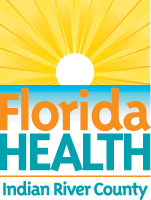It's a New Day in Public Health.
The Florida Department of Health works to protect, promote, and improve the health of all people in Florida through integrated state, county, and community efforts.
Health Risks After the Storm
September 20, 2017
Tips on How to Protect Your Family
Hurricane Irma has made its way through Indian River County and Florida, and even though the storm has passed, the Florida Department of Health in Indian River County encourages residents and visitors to follow these tips to stay safe after the storm.
Food Safety: When to Discard Food
- Food that has an unusual odor, color, or texture. When in doubt, throw it out.
- Perishable foods (including meat, poultry, fish, eggs and leftovers) in your refrigerator when the power has been off for 4 hours or more.
- Canned foods or food containers that are bulging, opened, or damaged.
- Frozen food that has thawed and does not contain ice crystals should be discarded. If there are ice crystals the food can be refrozen or cooked. Freezers, if left unopened and full during a power outage, will keep food safe for 48 hours (24 hours if half full).
Sanitation and Hygiene:
- Basic hygiene is very important during this emergency period. Always wash your hands with soap and water. Use only water that has been boiled or disinfected for washing hands before eating, after toilet use, after helping in cleanup activities and after handling items contaminated by floodwater or sewage.
- Flood water may contain fecal matter from sewage systems, agricultural and industrial waste and septic tanks. If you have open cuts or sores exposed to the floodwater, keep them as clean as possible by washing them with soap and disinfected or boiled water.
- Apply antibiotic cream to reduce the risk of infection. If a wound or sore develops redness, swelling or drainage, see a physician.
- Consult a physician for wounds if it has been 5 years since receiving a tetanus vaccination.
- Do not allow children to play in floodwater. They can be exposed to water contaminated with fecal matter.
- Do not allow children to play with toys that have been in floodwater until the toys have been disinfected. Use 1/4 cup of bleach in 1 gallon of water to disinfect toys and other items.
Clean-up
- Clean up debris carefully to avoid injury and contamination.
- Chainsaws should only be operated in safe conditions (not in water soaked areas) and by people who are experienced in proper use.
- Lift heavy debris by bending knees and using legs to help lift.
- Wear shoes to avoid injury to the feet from glass, nails or other sharp objects.
- Avoid contact with downed power lines.
- Be alert to wildlife (snakes, alligators, etc.) that may have been displaced as a result of the flood or storm. If you see a snake or other wildlife, back away from it slowly and do not touch it. If the snake is in your home, immediately call the animal control agency in your county.
Flooded Private Wells
If your well has been flooded, please call Department of Health in Indian River, Environmental Health at 772-794-7440 for information on how to sample your water and where to bring the sample for bacterial testing. If the test reveals bacteria, the well and water system need to be disinfected.
www.floridahealth.gov or www.FloridaDisaster.org. Also, visit the following websites for other state and federal information on emergency and disaster planning: www.redcross.org, www.ready.gov or www.fema.gov.
About the Florida Department of Health
The department, nationally accredited by the Public Health Accreditation Board, works to protect, promote and improve the health of all people in Florida through integrated state, county and community efforts.
Follow us on Facebook, Instagram and Twitter at @HealthyFla. For more information about the Florida Department of Health please visit www.FloridaHealth.gov




Connect with DOH